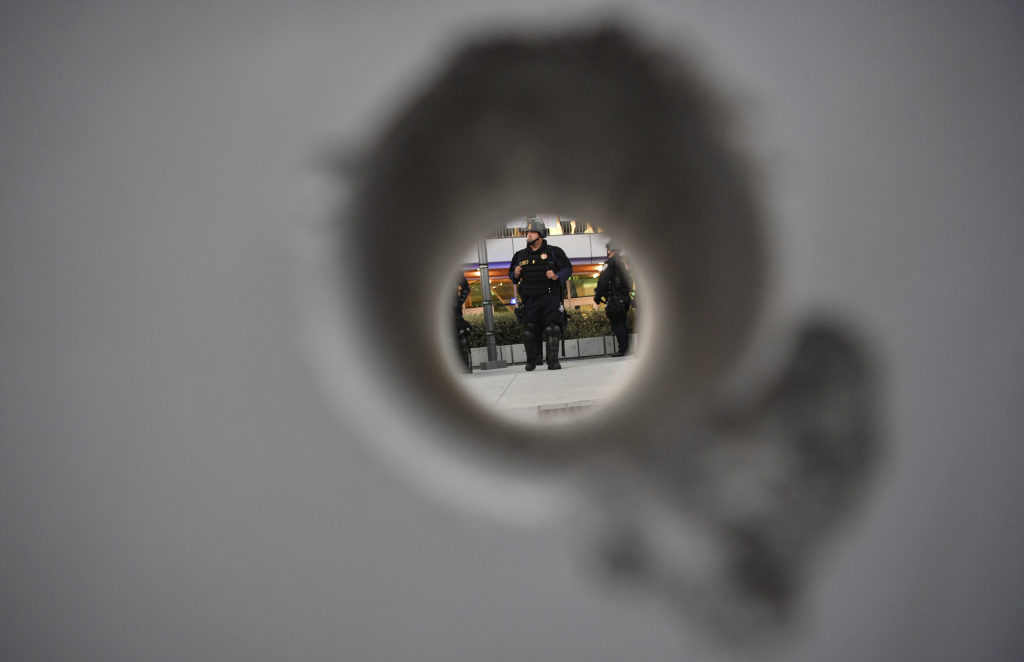Words are not violence — and violence is not debate
{$excerpt:n}
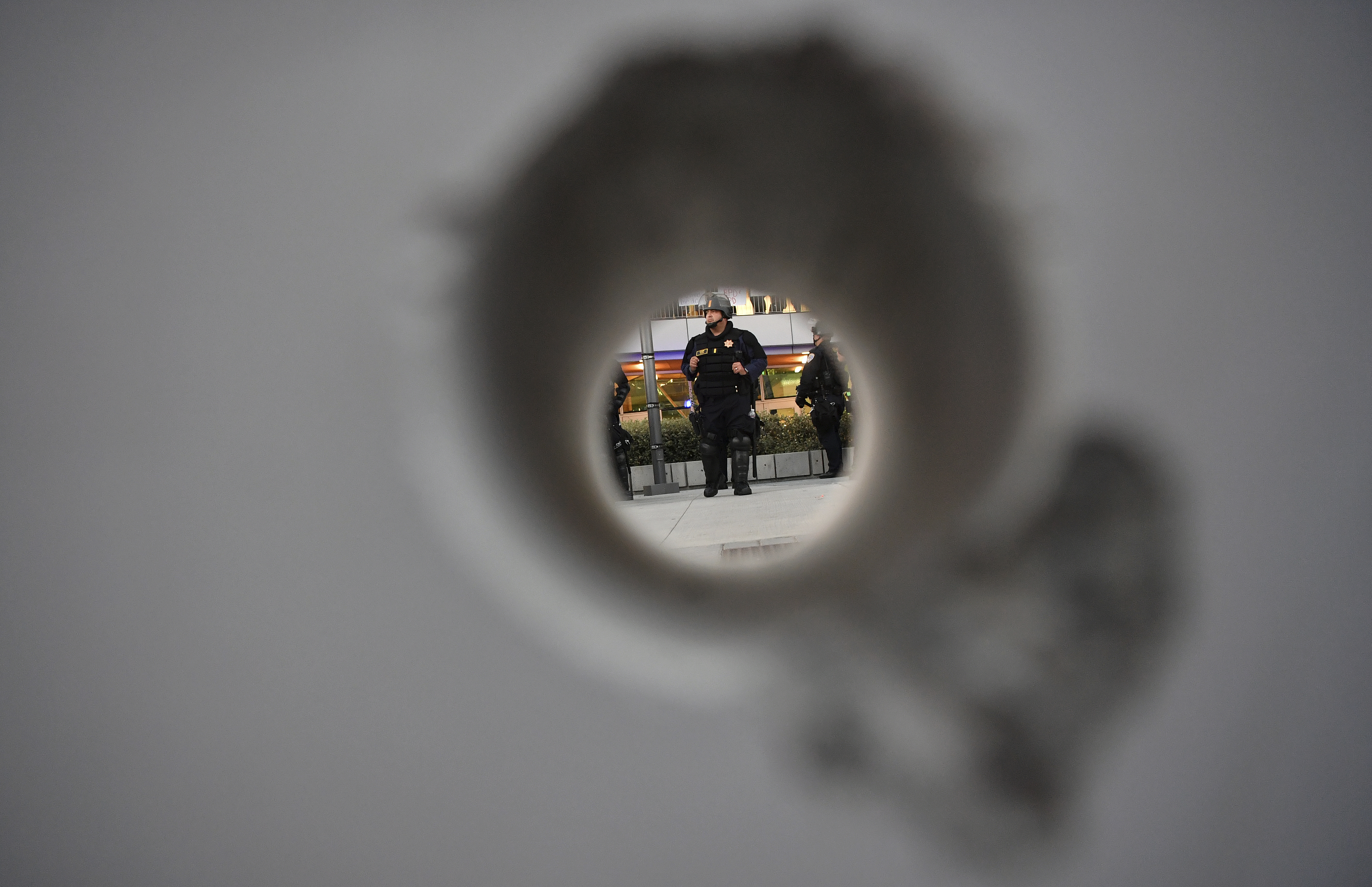
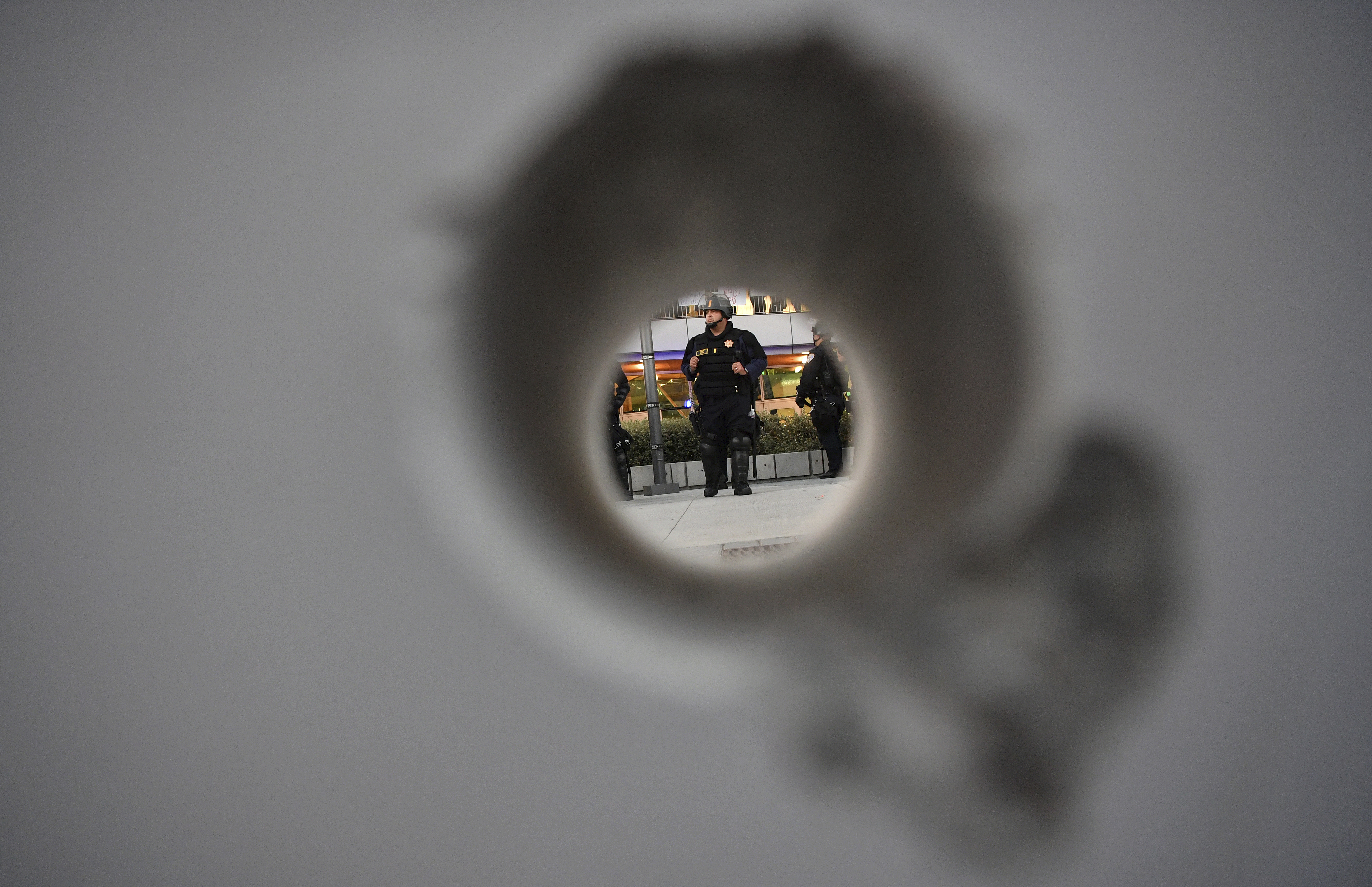
As seen through a concrete barricade, a police officer monitors the scene during a speaking engagement by Ben Shapiro on the campus of the University of California Berkeley in Berkeley, Calif. (AP Photo/Josh Edelson)
Steadfast believers in the marketplace of ideas and a classically liberal education have warned of safe spaces, trigger warnings, and snowflake culture to no avail. Many called these first amendment enthusiastic “alarmist” or “free speech fundamentalists” and questioned what harm could come from creating a culture of mental comfortability and safety. Recently, however, the consequences of coddling the minds of America’s youth has been on full display.
Students now believe that words are violence — not similar to violence, not something that could lead to violence, but actual violence.
“Speech is violent, we will not be silent!” students at UC Berkeley chanted when Ben Shapiro showed up to speak on campus.
“Speech is violent, we will not be silent!” Students protesting #BenAtBerkeley. pic.twitter.com/49V6DD9OI7
— Sophia Lee Sohyun (@SophiaLeeHyun) September 15, 2017
Similarly, when right-leaning students chalked the sidewalk to prepare for Free Speech Week, a student senator made sure the chalk-scribbled-words were quickly washed off the sidewalk.
“25+ students are out here erasing the violent chalking of our peers…I’ll be following up with the conduct reports for the students who decided it was ok to threaten communities via chalk,” Juniperangelica Cordova, ASUC Senator at Berkeley, posted in part on Facebook (emphasis added).
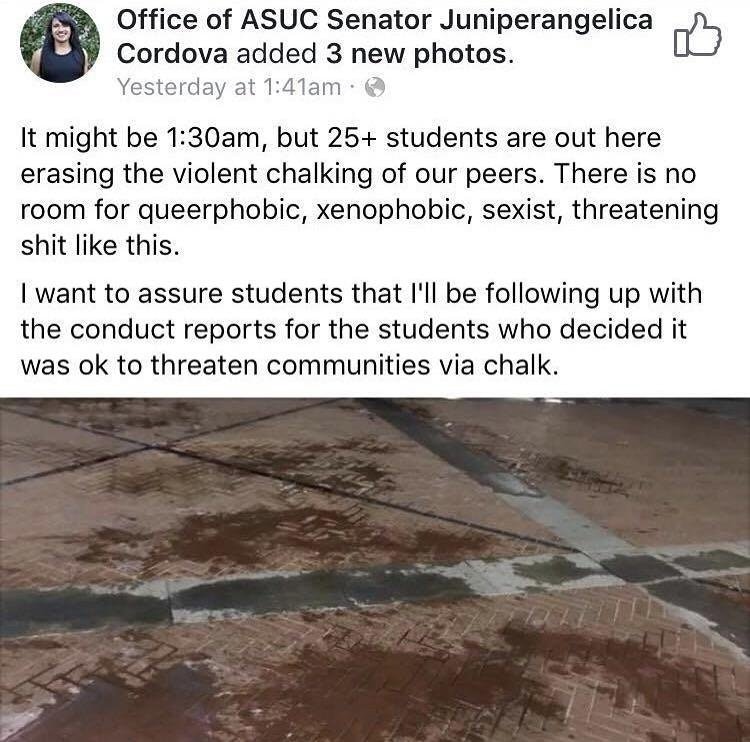
via Facebook
On the other hand, leftist students used chalk to communicate the message “free speech kills.”
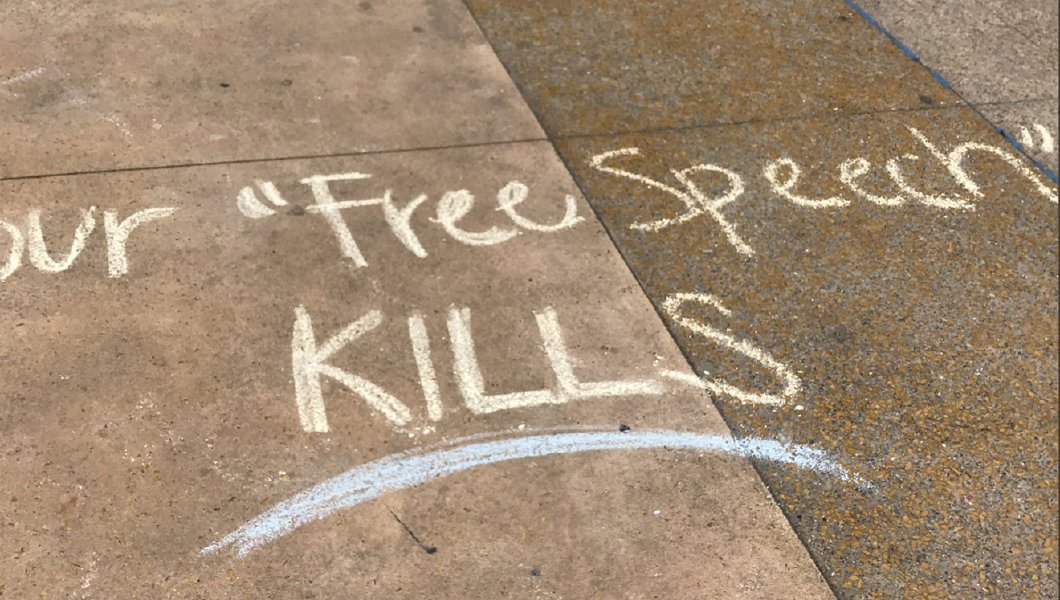
via Twitter
This really should come as no surprise.
When students are told they need a (trigger) warning before hearing an idea, it implies that the idea is hurtful. When students are told they should look for safety (in the form of a physical safe space) if thoughts, concepts, or ideologies make them feel uncomfortable, it implies that encountering ideas outside of your comfort zone is physically unsafe. When students watch university administrators go to extraordinary lengths to censor and purge certain ideas from campus, it shows students just how important it is to shut down these ‘violent’ ideas.
As a result, much of higher education has become an illogical paradox where certain ideas, expressed through spoken or written word, are literally violent, and in return actual violence is somehow accepted as an appropriate act of debate and self-defense.
In reality, words are not violent and violence is not an effective or appropriate means of dialogue. In fact, more speech and greater exposure is the best way to effectively combat ideas that are abhorrent.
Until young Americans can step outside of their ideological comfort zone, listen to opposing views, and make a peaceful and rational argument against those ideas, the ideas they hate so much will only continue to grow. After all, higher education is supposed to be a place where individuals grow and sharpen their beliefs, not hide from opposition. Words are not violence and violence is not debate.
The post Words are not violence — and violence is not debate appeared first on Red Alert Politics.
Source: Red Alert Politics



